Yet CEDAW – Convention of the Elimination of All Forms of Discrimination Against Women – has likely impacted on her life and her daughters, if [...]]]>
Yet CEDAW – Convention of the Elimination of All Forms of Discrimination Against Women – has likely impacted on her life and her daughters, if she has any, in many ways, from pension and inheritance rights to the passport they hold.
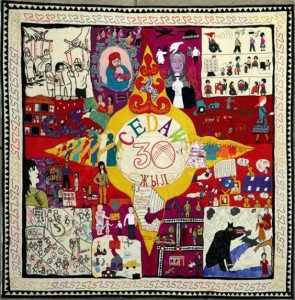
Quilt made by women of Kyrgztan. (Unifem)
CEDAW, which was adopted by the United Nations General Assembly 30 years ago today, is the global Bill of Rights for Women, the first international human rights treaty devoted to gender equality.
Through its 30 articles, CEDAW has boosted women’s rights worldwide in many ways.
Some examples: new constitutional guarantees for women in Thailand; land- owning rights for women in Kyrgyzstan and Tajikistan; changes to the law of evidence to benefit women in the Solomon Islands; and reproductive health rights in Colombia.
India outlawed sexual harassment in the workplace, Mexico tightened its domestic violence laws and Morocco passed a new family code in 2004. Read more here.
Today CEDAW turns 30 and is the world’s most widely ratified treaty, with 186 signatory countries.
But there is no time to rest on laurels.
Attempts by conservative forces – from Washington to Jerusalem, from Riyadh to Jakarta – to erode CEDAW are underway, primarily in the field of women’s reproductive rights, nationality, family rights and relationships.
Several countries have failed to ratify the treaty – Iran, Nauru, Palau, Somalia, Sudan, Tonga and the United States, although the Obama administration has indicated it will.
Twenty-two countries have signed and ratified but reserve the right not to implement certain provisions.
Some are minor: Australia does not want to send women soldiers into combat.
Others are more threatening: the United Arab Emirates wants to keep its unequal inheritance laws based on Shariah, and Algeria, its Family Law.
Worldwide, the treaty’s implementation is uneven. In the Occupied Palestinian Territories, Palestinian women suffer abuse and denial of basic human rights at the hands of Israeli settlers and soldiers. The right to family reunification is particularly ignored.
Nevertheless, in three decades, CEDAW has truly changed the world for women, for those who fly on planes and for those who ride donkey carts alike. Equality is our right.
HAPPY ANNIVERSARY!
Why today? Because it’s the last of the 16 Days against Violence against Women, arguably the best known global campaign of the women’s movement, and also Human Rights Day.
Today, Sahrawi activist Aminatou Haidar starts her fourth week of [...]]]>
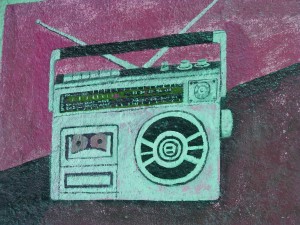
What's in the news on Human Rights Day?
Why today? Because it’s the last of the 16 Days against Violence against Women, arguably the best known global campaign of the women’s movement, and also Human Rights Day.
Today, Sahrawi activist Aminatou Haidar starts her fourth week of hunger strike at Lanzarote airport in the Canary Islands. She is so weak she has to be transported to court by wheelchair or stretcher. Last week, the head of UNHCR called on Spain and Morocco to resolve her issue on humanitarian grounds.
The award-winning Haidar is known as the Sahrawi Gandhi for her non-violent protests for the independence of her desert country, the Western Sahara, ruled by Morocco since 1975.
In November, the Moroccan government unlawfully withdrew her passport and deported her when Haidar returned from receiving the prestigious Civil Courage Prize in New York. In 2008 she received the Robert F. Kennedy Human Rights award.
On the other side of the world, in the Philippines, on 23 November, the eve of 16 Days, 22 women were massacred along with 35 men. The women were raped, sexually mutilated and shot in their private parts. The mass murder was instigated by a local politician-warlord and carried out by his militia. Among the victims were the wife and sister of a rival political candidate and two women lawyers who worked for him.
Believing that the Muslim tradition of respecting women would protect them from clan violence, the group was going to file papers for the candidate, along with a group of journalists. Among the 57 killed were 30 thirty media people, journalists, technicians and drivers. This is the largest single killing of journalists in history.
Earlier in November, Cuban blogger Yoani Sanchez, along with two less well-known bloggers, a woman and a man, were detained and beaten up by authorities in Havana. They were on their way to a peaceful march.
Is this cause for despair? No. These examples of violence unleashed against women in politics and media only reaffirms our commitment to denounce these crimes and seek justice.
The media now has a better tool to do this job. On 25 November, IPS presented its new handbook on reporting on women and violence. User-friendly, with an agile layout, it covers a wide spectrum of issues, from cyberstalking to trafficking, with story examples, discussion points, fact checks and additional resources. Download it here.
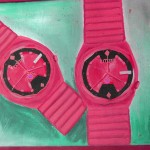
Do it now! No time to lose!
Email your support for Aminatou here or at: todosconaminatou@gmail.com
And do whatever you can do to end violence against women and protect human rights defenders wherever you are.
]]>
In Paris, the Chilean researcher, novelist and feminist Ana (Nicha) Vazquez Bronfman had died, aged 71. She was a beacon for a generation of Latin American women for her insights on identity and gender. One [...]]]>
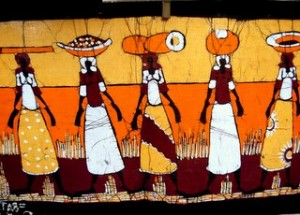
Motherhood, sisterhood, friendship.
In Paris, the Chilean researcher, novelist and feminist Ana (Nicha) Vazquez Bronfman had died, aged 71. She was a beacon for a generation of Latin American women for her insights on identity and gender. One concept she elaborated specially was “transculturation” – the permanent construction of identities in this world of global migration. In 2006 she wrote superbly about sexuality among the elderly – transgressions and secrets, she called it.
In Rome, my friend and fellow journalist Paola Rolletta underwent the next to last chemotherapy session against breast cancer. She was jubilant to see the end of the chemical bombardment. Like antiretrovirals, chemo saves lives but is no picnic.
So, in three hours, youth, disease, health and death touched me. Motherhood and friendship. Joy and sorrow.
Email has made this vertigo possible. News travel quickly and straight to our screens, to our hearts and minds.
News from friends
These days, breast cancer appears more frequently in news from friends.
One in the Dominican Republic and another in Mozambique finished their chemo last year. Paola is finishing hers in February. In Pretoria, where I live, another friend had her second chemo last Friday.
We had lunch together today and wondered if there is more breast cancer among women now than 50 years ago, or better detection. If the rates are higher, why? Lifestyle, fast food, stress, radiation from microwaves, cellphones and all the gadgets that crowd our life?
The Harvard School of Public Health estimates that the poor will account for more than 55 percent of breast cancer deaths this year. Read a very informative story on growing cancer rates among women in the developing world here.
A recent article in the New England Journal of Medicine argues that “western” influences such as changes in diet, less exercise, delayed childbirth, families with fewer children, less breast feeding, and hormone replacement therapy are all thought to increase the risk of breast cancer for women in low-income countries.
The good news is that breast cancer, like AIDS, is becoming less and less lethal, if detected and treated early.
I am so proud of my cancer-survivor friends. They have worn their baldness as a badge of courage and have acquired new wisdom.
And while we age and think about breast cancer, a younger generation moves closer to adulthood.
I wondered how to name and save this rambling text in my laptop. And I wrote – BLOG: LIFE.
]]>Marie Mendene is an extraordinary activist from Cameroon and one of the first African women to say publicly that she lives with HIV, in the 1990s, when AIDS was a disease of shame and blame.
This is one of my favourite photos about AIDS [...]]]>
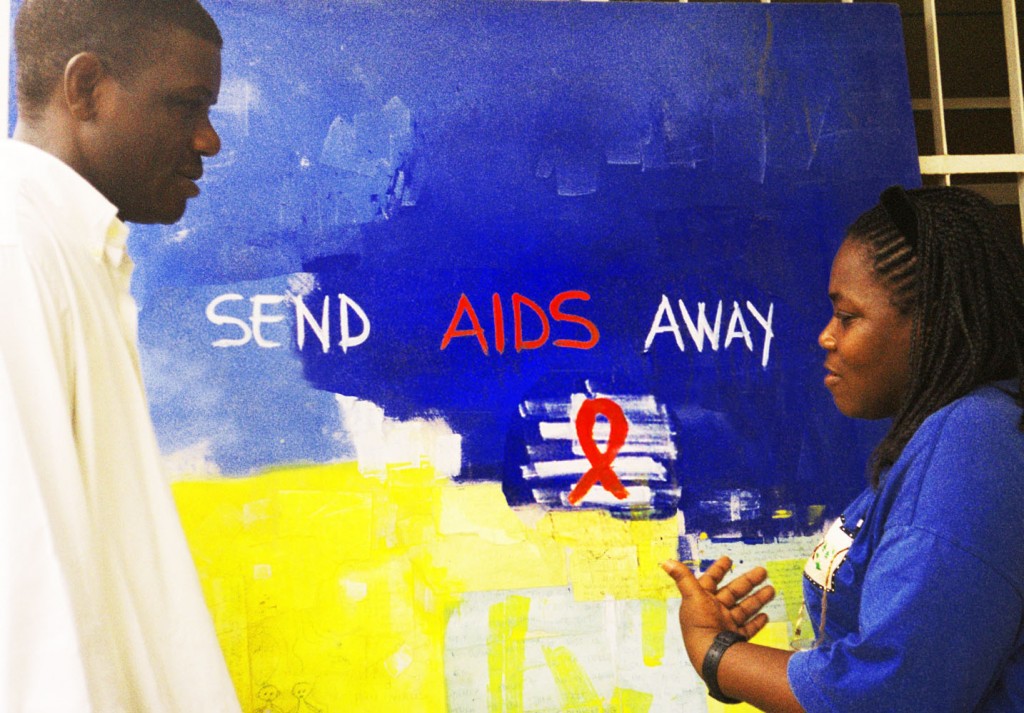
By M. Sayagues
Marie Mendene is an extraordinary activist from Cameroon and one of the first African women to say publicly that she lives with HIV, in the 1990s, when AIDS was a disease of shame and blame.
This is one of my favourite photos about AIDS in Africa. I took it at Sunshine, her NGO in Douala, in 2003, before antiretroviral treatment became widely available. Only a few Cameroonians in cities could get the life-saving pills.
The day I took the photo, Marie had queued for seven hours and received only half of her monthly ARV pills. She was understandably upset about the poor logistics and delivery of medicines. AIDS magnified all the inadequacies of health systems.
That was then. Today, nearly three million people in Africa are on ARV treatment. This seemed like a dream then, but activists were campaigning hard to make it come true.
Marie had a clear vision of activism. “We should go beyond the begging bowl and the appeal to compassion, beyond the stage of being used to do prevention and awareness, and become part of real-decision making around AIDS,” she told me.
Marie is to the right in the pic, with a fellow activist.
]]>What had tongues wagging was citizen’s journalism, dispatches by ordinary folk about electoral irregularities from the Rovuma to the Maputo rivers.
Good stuff: government cars illegally used for campaigning, [...]]]>
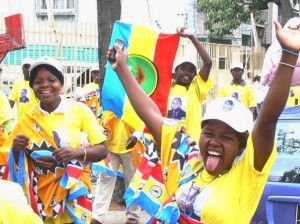
The sisters can do it by themselves. By A. Vilanculos
The buzz in Mozambique during the recent elections was not the TV debate among presidential candidates debate (there is none) or their programs (all vague).
What had tongues wagging was citizen’s journalism, dispatches by ordinary folk about electoral irregularities from the Rovuma to the Maputo rivers.
Good stuff: government cars illegally used for campaigning, with cellphone pics of their registration plates (until officials wised up and started covering up plates and ministry logos with party posters). Reports of youth tearing downs other party’s posters, fistfights, intimidation, and police lack of impartiality.
On election day, people told of late opening of polling booths and misbehaviour of poll officials and party observers.
Information was relayed by a network of 110 correspondents in 11provinces (most community radio reporters) and concerned citizens who texted, phoned and emailed.
The information was fact-checked and collected in a daily bulletin produced by the Centro de Integridade Publica (an NGO anti-corruption monitor).
The bulletin, in Portuguese and English, was emailed as pdf to some 3,000 subscribers, who redistributed it to at least double this number, and was widely reproduced, for free, by the local press, especially the 60+ community radio stations.
This was watchdog citizen journalism at its best.
Thanks to the Bulletin, Mozambicans had balanced coverage of the pre-poll partial exclusion of the new kid in the block, the opposition MDM, of the instances of ballot box stuffing and the invalidation of 100,000 votes.
The Bulletin provided a credible, professional and impartial source of information, above party politics (Mozambican media is aligned with political parties, ideological blocs and economic interests).
Bits of similar projecst exist elsewhere in Africa but I don’t know of any other so well-rounded.
In Kenya, during the post-electoral conflict two years ago, people texted and phoned in reports of violence to a hotline set up by an enterprising NGO. The information was quickly confirmed and uploaded onto a web map. The press, donors, and people could keep tabs on which parts of Kenya were burning.
Ghana made good use of sms by citizen correspondents during its recent elections.
Imagine if women developed such a tool.
Imagine that the 50-50 Campaign for equal political representation in Malawi could track women candidates during the campaign and the polls, and keep tabs on the insults, the stone-throwing, and the intimidation of women candidates seen last year.
In South Africa, during the 15 days against Violence against Women that started this week, a daily bulletin could keep track of gender-based abuse, collecting reports from police, rape crisis centres, and shelters. This would provide a graphic picture of South Africa’s second epidemic, after AIDS.
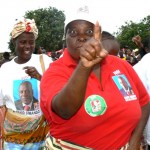
Grab it now! Pic b y A. Vilanculos
Historically, women are the last to use new technologies. This time, we should grab it now!
Check the Take Back the Tech site for cool ideas on taking control of digital technology to end violence against women.
And not only digital – one idea I liked is to go for a walk with a chalk and write up your thoughts on public space.
Watch the sidewalks of my neighbourhood in Pretoria – have chalk and thoughts, will walk.
* Read IPS stories on femicide in Chile, forced sterilisation in Peru and gender-based violence elsewhere.
]]>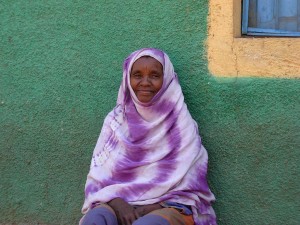
Women manage family health in Ethiopia.
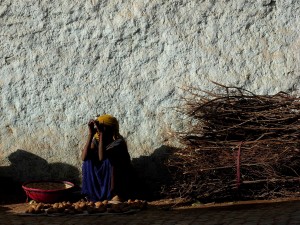
Pics by M. Sayagues
Burqa-wearing women may lose the right to drive in Bahrain over a conflict between government and conservative lawmakers.
The government wants to amend the traffic law and grant male traffic officers the right to ask women to lift the veil and show their faces.
On the other [...]]]>
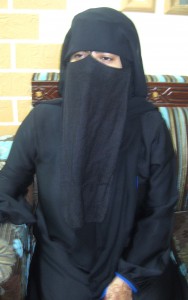
Dressed to drive? By S.Hamada
Burqa-wearing women may lose the right to drive in Bahrain over a conflict between government and conservative lawmakers.
The government wants to amend the traffic law and grant male traffic officers the right to ask women to lift the veil and show their faces.
On the other hand, some lawmakers are loath to approve the amendment or at least demand that female traffic officers be employed for this task.
Let’s hope that in either way it will be a win-win situation for women: that they will continue to drive, and enter a job sector that has been reserved for men since the 1970s. Bahrain doesn’t impose a dress code on women. Wearing a burqa (or Niqab, in Bahrain) is a personal choice.
OK, not all women here wear a burqa as personal choice; some do it to obey their male relatives or conservative families. Whatever the reasons, burqa limits women’s social and professional activities. For example, they cannot eat at restaurants without closed cabins nor work in many sectors except those with limited, female-only jobs.
Anyway, women who feel comfortable wearing a burqa shouldn’t be discriminated or underestimated. Females worldwide should be allowed to speak their minds, lead their lives to the fullest and freely practice their faiths.
Forcing women to take off their burqa is as cruel as forcing the veil on them.
A measure of independence
Burqa-wearing women in Bahrain have one important right – they can drive.
This is fairly new. Before 2006, burqa-wearing women drivers were harassed by traffic officers and fined.
In 2006 the government allowed burqa-clad drivers as a result of pressure from conservative MPs, who represent the majority of the Lower House, with the proviso that these women should, if requested, show their faces to traffic officers, for security reasons.
Not all were pleased with that decision. A Bahraini columnist, Abdullah Al Ayobi, argues that, for security reasons, fully covered women should not drive. He wrote last year that Bahrain was the only country in the world that allows unidentified individuals to drive.
Being able to drive has made life easier for women, especially with Bahrain’s poor public transportation.
We will soon know whether burqa-wearing women will continue to drive legally in Bahrain.
]]>Seven PM at the supermarket. After a long day at the office, she is standing in line to pay for groceries to make dinner, stealing glances at her watch, grappling with two young kids who want her to buy some chewing gum…
Does this picture ring a bell? Survey [...]]]>
Seven PM at the supermarket. After a long day at the office, she is standing in line to pay for groceries to make dinner, stealing glances at her watch, grappling with two young kids who want her to buy some chewing gum…
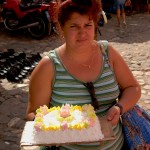
Unequal sharing of the work pie. M. Sayagues
Does this picture ring a bell? Survey after survey across the world report that women put in between 20 and 30 hours a week of domestic and family work. Unseen, unsung and unpaid, yes, but not insignificant.
Unpaid work in the home, done mainly by women, is estimated at approximately 50 percent of all productive activity even in industrial countries, and as much as 60-70 percent in many developing countries,” says Hazel Henderson in an interview with IPS.
“The U.N. Human Development Report and its Human Development Index (HDI) in 1996 calculated that unpaid work was estimated at 16 trillion dollars (11 trillion dollars by women and 5 trillion dollars by men). This figure was simply missing from the official global GDP figure of 24 trillion dollars, although a truer figure would have been 40 trillion dollars for global GDP in 1996.”
Henderson – futurist, economic iconoclast, founder of Ethical Markets Media and author - was commenting on the just published “Stiglitz-Sen Report”, which argues that countries need to find ways to measure well-being alongside raw economic growth.
Having dedicated her studies to an interdisciplinary economic and political theory focused on environmental and social issues, her views couldn’t be more pertinent.
(Find Henderson’s books)
]]>Some of those championing Caster Semenya’s cause accuse those wanting to sex-test Caster of imperialism and racism (as well as sexism). Others plead to wait before reaching a verdict, arguing that the realities of sex testing are enormously complex
Firstly to address the issue of terminology, over which [...]]]>
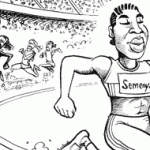
Courtesy of Zapiro, Mail & Guardian
Some of those championing Caster Semenya’s cause accuse those wanting to sex-test Caster of imperialism and racism (as well as sexism). Others plead to wait before reaching a verdict, arguing that the realities of sex testing are enormously complex
Firstly to address the issue of terminology, over which there seems to be confusion. Gender is the dominant society’s views on how women and men should look, behave, what roles they should play in society, how they should perform and frequently what rewards they receive – hence gender inequity. This has usually led to lower status and discrimination against girls/women but has increasingly been seen as limiting the options and potentially harming boys/men too.
Gender is not a politically correct term for sex. Sex testing would be just that – establishing whether a person is biologically female or male. So gender testing is not the term that should be used this case, but sex testing.
Secondly, to tackle the science issue, as this tends to obscure the real issue of gender stereotyping and discrimination so evident in this case. Professor Tim Noakes, an international sports science expert says the issue of ‘unfair advantage’ which is the only thing that should be at play here as it is in the case of drug use,is simple to establish.
He states that the issue that needs to be clarified here is whether the person concerned is a man masquerading as a woman or not. This could be established by a simple physical examination “handled within the usual constraints of the doctor/patient domain – not in the public domain” as has happened in the harmful manner in which the IAAF has handled this.
As for the rest, he says, there is great variation. All other possible tests including chromosome testing is indeterminate and so that should be left well alone. The calls for more to be done in dealing with
this issue and await judgment are therefore erroneous and cloud the issue in a shroud of inappropriate so-called scientific enquiry.
Sissies and butch
The third issue relates to what lies at the heart of the matter, social norms. While issues of racism and imperialism have and will continue to apply in various circumstances and have a sensitive history in terms of
women’s bodies, particularly in Africa, focusing on these issues in the current context obscures the much neglected ‘elephant in the room’ - gender discrimination. Comments within the press and on talk shows are
unwittingly guilty of this same problem in placing ‘blame’ at Athletics South Africa or her coach’s door.
They argue that the authorities should have pre-empted this situation, given her prior experiences (at the hands of the teachers, members of the public and previous authorities). ‘Pre-empting the situation’ would fall prey to the exactly these same prejudices – pandering to what people perceive to be ‘normal’ for girls or women.
This is akin to what might have happened during the apartheid era where actions may have tried to stave off racism by negotiating black people’s entry into racially reserved sporting or cultural events before the
time.
Many white girls who do not ‘look’ as society expects will tell similar humiliating stories of being stopped from entering female public toilets or being questioned as to whether they male or female.
At the core of this issue are ideas about gender – how girls/women and boys/men look and behave and perform (in this case perhaps a young woman winning by 2 seconds ahead of the field is not seen as ‘normal’).
This is what has been so hard to address locally in South Africa, despite our progressive constitution, due to deeply held dominant ideas about what is ‘female’ and ‘male’. It is these ideas and actions that promote gender discrimination. This leads to men, who in societies’ terms do not look ‘masculine enough’, being called ‘sissies’ and women who look not ‘feminine enough’ being labelled ‘butch’.
At the root, gender discrimination
In our own society, this has led to violent attacks on some women and in our own and other countries to violent attacks on some boys/men. This is what we need to clearly point as underlying this case and name it for what it is. Framing the discrimination as racism or imperialism without reference to gender discrimination as the main issue risks reinforcing gender stereotypes.
Societies have a long way to go in terms of changing the dominant ideas on how women and men should look and behave and perform, and in some cases, dress – and allow for variations in ‘looks’ and roles to be
underpinned by what people would like to be and do, rather than societies’ current dominant expectations.
There are many excellent organisations in our own country and abroad that have worked with women and men on this issues, but as it is all to obvious from this and other cases, much work is still needed for these choices and this freedom to take root in the broader society as a whole.
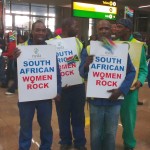
Supporters at the airport. Photo: Marion Stevens
Caster should not be having to deal with a world controversy over her win. She should be unreservedly basking in the glory of her and our incredible victory. No doubt she has experienced this humiliation and discrimination at other levels before and has become somewhat hardened to its effect, but we wish her, her friends and her family strength in dealing with this blatant gender discrimination.
As Caster Semenya and our other gold medal winner, Mbulaeni Mulaudzi, return home – congratulations on your amazing wins and Caster, you have our ful lsupport. For the rest, to Caster’s detractors or apologists, hang your heads in shame for not ‘naming’ the issue for what it is and for perpetuating gender stereotypes and discrimination in her individual case and in society as a whole.’
As we once again approach the 16 days of activism against violence against women, let us bear these issues in mind and not mouth platitudes in our struggle against gender inequity and discrimination.
Diane Cooper – Director, Women’s Health Research Unit, School of Public
Health and Family Medicine, University of Cape Town
Leslie London, Director, School of Public Health and Family Medicine,
University of Cape Town
Nomfundo Eland , Treatment Action Campaign (TAC) Women’s Rights Campaign
Larissa Klazinga and Rhodes Gender Action Project
Lisa Vetten, Tshwaranang Legal Advocacy Centre to End Violence Against Women
Nomfundo Eland, TAC Women’s Rights Campaign
Shirley Walters, University of Western Cape, South Africa
Lillian Artz, Director, Gender, Health and Justice Unit, University of Cape Town, South Africa
Glenn de Swardt, Health4Men
Jane Harries, Associate Director, Women’s Health Research Unit,
University of Cape Town
Jennifer Moodley, Women’s Health Research Unit, University of Cape Town
Sheila Meintjes, Political Studies Department, Wits University
Ilse Ahrends, the Saartjie Baartman Centre for Women and Children
Phumi Mtetwa,the Lesbian and Gay Equality Project
Marion Stevens, Health Systems Trust
Sipho Mthathi, Human Rights Watch South Africa.
Deborah Byrne, Foundation for Human Rights (FHR)
Sumaya Mall, Women’s Health Research Unit, University of Cape Town
Ntobeko Nywagi, Women’s Health Research Unit, University of Cape Town
Sheila Cishe, Women’s Health Research Unit, University of Cape Town
Chelsea Morroni, Women’s Health Research Unit, University of Cape Town
Phyllis Orner, Women’s Health Research Unit, University of Cape Town
Regina Mlobeli, Women’s Health Research Unit, University of Cape Town
Mary Jansen (KIWIA) Khoe San Indigenous Women in Action
Angelica Pino, Gender-based Violence Programme, Centre for the Study of
Violence and Reconciliation
Shireen Hassim, University of Witwatersrand, South Africa
Linda Cooper, Centre for Higher Education and Development, University
of Cape Town
Akosua Adomako Ampofo, Inst. of African Studies and Head, Centre for
Gender Studies & Advocacy, University of Ghana, Legon
Cathy Mathews, Medical Research Council
Fareeda Jadwat, African Gender Institute, University of Cape Town
Ilse Ahrends,Saartjie Baartman Centre for Women and Children, South
Africa
Di McIntyre, NRF chair, Health Economics Unit, University of Cape Town
Andrea Rother, Centre for Occupational and Environmental Health
Research, University of Cape Town
Carol Thomas, thewomanspace
Johanna Kehler, Director, AIDS Legal Network, South Africa
Carrie Shelver, People Opposing Women Abuse, South Africa
Gabi Jiyane, the Lesbian and Gay Equality Project
Balise Mahlangu, the Lesbian and Gay Equality Project
Ayanda Rapita, the Lesbian and Gay Equality Project
Gertrude Fester, Feminist Forum/ Women’s and Gender Studies,University
of Western Cape
Naeemah Abrahams, Gender and Health Research Unit, Medical Research
Council, South Africa
Angelica Pino, Gender-based Violence Programme, Centre for the Study of
Violence and Reconciliation, South Africa
Pamela Scully, Women’s Studies and African Studies, Emory University &
Deputy Editor, Women’s History Review
Mary Jansen (KIWIA) Khoe San Indigenous Women in Action
Melissa Steyn, Department of Sociology, University of Cape Town, South
Africa
Gabi Jiyane,the Lesbian and Gay Equality Project
Marion Heap, Health and Human Rights, School of Public Health and
Family Medicine,University of Cape Town
Balise Mahlanguthe, Lesbian and Gay Equality Project
Bernadette Bredekamp, Division of Family Medicine, University of Cape
Town
Ayanda Rapita, the Lesbian and Gay Equality Project
Larissa Klazinga and Rhodes Gender Action Project
Laura Pollecutt, South Africa
Sokari Ekine,London
Natasha Primo
Alex Kent
Annemarie Hendrikz
Jon Weinberg, Cape Town
Eva Hunt, South Africa
Shirley Gunn, Cape Town
Susan Holland-Muter, South Africa
Tara Weinberg, Cape Town Lavona George, South Africa
Gille de vlieg, South Africa
Michael Weinberg, Cape Town
Anne Schuster, South Africa
Jenny Radloff, South Africa
Kathy Watters, Cape Town
Sakina Mohamed, South Africa
Nicolene McLean, Gender Action Project
Carla Tsampiras, Rhodes History Dept
Corinne Knowles, GENACT
Alan Kirkaldy, NTESU
Thava Govender, Human Development Consulting Agency,KZN, South Africa
Richard Matzopoulos, Medical Research Council and UCT Public Health
Bernedette Muthien, Engender
Sally Gross,Intersex South Africa
Surplus People Project, South Africa
Sharon Stanton, S.L Stanton Attorneys
Tessa Lewin, Communications Manager, Pathways of Women’s Empowerment,
Institute of Development Studies, UK
Nisaa Institute for Women’s Development